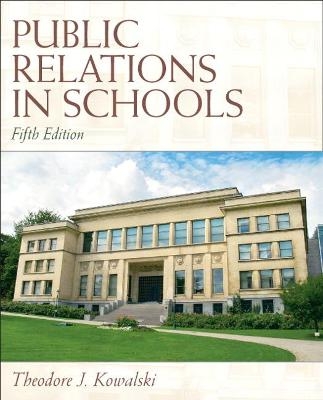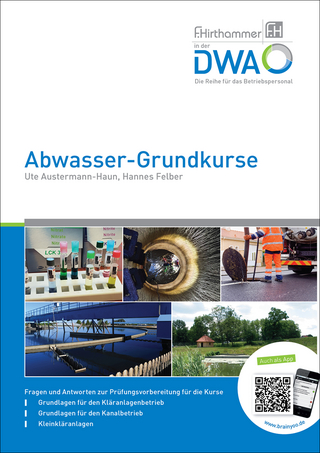
Public Relations in Schools
Pearson (Verlag)
978-0-13-707245-3 (ISBN)
Outfitting students with a wealth of practical, practice-based knowledge that they can take directly into the halls of their school, the new fifth edition of Public Relations in Schools has a fresh, contemporary focus on both how administrators can effectively communicate with the community and how building strong relationships with stakeholders can ultimately lead to overall school improvement. Through a blend of theoretical and tacit knowledge, this text offers students an in-depth guide to 1) how to successfully communicate with both internal and external school entities, 2) how to build and maintain positive and active relationships via social and political capital and 3) how to translate the value of these relationships into positive change within the school. While exploring these three central themes, the book emphasizes how new technologies can aid school success. At the same time, real-world case studies at the beginning of each chapter introduce readers to actual public relations issues and bring the material to life.
The revised fifth edition of Public Relations in Schools is updated with new materials and references throughout the text, including two new chapters – one on harnessing technology for your public relations needs and one on collecting, assessing, and applying public opinion. In addition, the new fifth edition text contains a matrix at the front of the book showing how content relates to ELCC/NCATE Standards – the widely used criteria for administrator preparation and licensing.
Theodore J. Kowalski, PhD Theodore Kowalski is professor and the Kuntz Family Chair in Educational Administration at the University of Dayton. He began his professional career as a teacher and building-level administrator in suburban Indianapolis, Indiana. Subsequently, he served as an associate superintendent and superintendent. He taught at Purdue University and Saint Louis University prior to becoming professor and dean of the Teachers College at Ball State University. In addition to his duties at the University of Dayton, Professor Kowalski is editor of the Journal of School Public Relations and serves on the editorial boards of several other professional journals including Educational Administration Quarterly and the AASA Journal of Scholarship and Practice. In 2000, he was selected to be the editor of the 2001 National Council of Professors of Educational Administration Yearbook, the first yearbook of the new millennium. The author of numerous books, professional articles, research papers, and monographs, Dr. Kowalski has received awards for his research, writing, and scholarship including the Outstanding Faculty Research Award from the Teachers College at Ball State University in 1993, the Outstanding Faculty Scholarship Award from the School of Education and Allied Professions at the University of Dayton in 2002 and 2005, and the Alumni Award in Scholarship from the University of Dayton in 2005. Since 1986, he has delivered over 100 invited lectures at colleges and universities and has provided consultant services to numerous education and business clients. Professor Kowalski's primary areas of research are organizational behavior and communication, decision making, and school and district administration.
Standards Matrix (ELCC/NCATE)
Part I: Contemporary Perspectives
Chapter 1 School Public Relations: A New Agenda
Case Study: The New Superintendent’s Public Relations Plan
Introduction
Perspectives of Public Relations
Erroneous Perspectives
Multiple Definitions and Models
School Public Relations
Meaning
Goals
Persistent Barriers
Current Importance
Underlying Themes
Information Age
School Reform
Communication
Reflective Practice
Summary
Questions and Suggested Activities
Case Study
Chapter References
Chapter 2 Social and Political Contexts
Case Study: Diversity and Local Public Schools
Introduction
Social Conditions and Schools
Changing Family Structure
Poverty
Immigrant Students
Effects of Social Problems on Student Behavior
Effects Social Problems on Schools
Political Conditions and Schools
Education Goals
Politics, Reform, and Engagement
Summary
Questions and Suggested Activities
Case Study
Chapter References
Chapter 3 Legal and Ethical Aspects of Public Relations
Case Study: Maynard Constructs a School Web Page
Introduction
Legal Dimensions
Tort Liability
Constitutional Torts
Political Speech
Privacy Rights
Religion and Public Schools
Community Values and Curriculum
Copyright
Ethics
Ethics in School Administration
Ethics in PR
Summary
Questions and Suggested Activities
Case Study
Chapter References
Chapter 4 Current Contexts of School Reform
Case Study: Applying a Communicative Approach to Policy Development
Introduction
Local Control and School Reform
Democratic Localism and Representative Democracy
Local Reforms and Stakeholder Involvement
Civic Engagement and Administrative Behavior
Civic Engagement Approaches
Administrative Behavior
School Improvement and Public Relations
Why Civic Engagement Matters
How PR Can Contribute to Engagement
Summary
Questions and Suggested Activities
Case Study
Chapter References
Part II: Conceptualizing and Institutionalizing a Public Relations Program
Chapter 5 Communication and Conflict Management
Case Study: Importance of Internal Relations
Introduction
Communication
Communication Basics
Listening Skills
Nonverbal Communication
Communication Networks
Communication Competence
Conflict Management
Conflict Types
Conflict Contaminants
Conflict-Resolution Strategies
Summary
Questions and Suggested Activities
Case Study
Chapter References
Chapter 6 Public Relations Programs
Case Study: High Hopes Gone Sour
Introduction
Conceptualizing a PR Program
Responsibility
Intended Beneficiaries
Organizational Structure
Non-traditional Public Schools and Private Schools
Non-Traditional Public Schools
Private Schools
Organizing PR in Schools of Choice
Student and Parental Involvement
Summary
Questions and Suggested Activities
Case Study
Chapter References
Chapter 7 Planning, Implementing, and Evaluating Programs
Case Study: When Schools and Relationships Fail to Improve
Introduction
Program planning
Planning Processes
Characteristics of Effective Plans
Planning Team
Administrator Interventions
School-Level Supplemental Planning
Implementing
Administrative Responsibility
Naming the Program
Resource Allocation
Evaluating Programs
Types of Evaluation
Outputs and Outcomes
Essential Questions
Utility
Methods, Techniques, and Sources
Summary
Questions and Suggested Activities
Case Study
Chapter References
Chapter 8 Using Technology to Exchange and Manage Information
Case Study: Roger Creates a Web Page
Introduction
Essential Constructs
Technology Literacy
Information Literacy
Information Technology
Management Information System
Technology Tools
Email
Electronic Newsletters
District or School Web Pages
Electronic Networking
Videoconferencing
Chat Rooms
Blogs
Summary
Questions and Suggested Activities
Case Study
Chapter References
Part III: Focused Objectives
Chapter 9 Community Relations
Case Study: A Mentor’s Questionable Advice
Introduction
Relationships and Communication
Improving Community Relations
Identifying and Analyzing Publics
Communicating with the Community
Deploying a Multicultural Perspective
Positive Relationships with Parents
Need for Parental Relationships
Building and Maintaining Parental Relationships
Summary
Questions and Suggested Activities
Case Study
Chapter References
Chapter 10 Media Relationship
Case Study: Mismanaging a Sensitive Situation
Introduction
Organizational decisions
Media Relations Plan
Implementing a Media Relations Plan
Employing a PR Specialist
Working with Print Media Reporters
Establishing a Foundation for Effective Relationships
Working with New Reporters
Accommodating Deadlines
Dealing with Negative News
Speaking Off the Record
Refusing to Comment
Telling the Truth
Staying on Track
Getting the School’s Story to the Media
Preparing News Releases
Planning and Conducting News Conferences
Correcting the Record
Working with Electronic Media Reporters
Television
Radio
Web-Based Outlets
Summary
Questions and Suggested Activities
Case Study
Chapter References
Chapter 11 Public Opinion
Case Study: Good Intentions Aren’t Always Enough
Introduction
Defining Public Opinion
Civic Engagement and Policy
Types Citizen Engagement
Public Opinion as a Form of Civic Engagement
Surveying Opinions
Scientific Polling
Sampling Issues
Return Rates
Data Collection Alternatives
Focus Groups
Question Development
Summary
Questions and Suggested Activities
Case Study
Chapter References
Chapter 12 Developing and Executing a Successful Funding Campaign
Case Study: Playing Hardball
Introduction
Validating the Need
Marketing
Focal Points
Collecting Data
Projecting an Election Outcome
Referendum Campaign
Steering Committee
Campaign Consultant
Volunteers
Positive Campaign Characteristics
Mistakes and Problems to Avoid
Evaluating the Campaign
Summary
Questions and Suggested Activities
Case Study
Chapter References
Chapter 13 Responding to Crisis
Case Study: Suicide at McKinley Middle School
Introduction
Safety and Security Planning
Integrating District and School Responsibilities
Defining a Crisis
Planning Scope
Appointing the School Crisis Team
Safety and Security Audit
Constructing a Crisis Plan
Preparing Employees to Implement the Plan
Evaluating the Plan
Crisis Communication
Pre-Crisis Tasks
Communicating During the Crisis
Communicating After the Crisis
Summary
Questions and Suggested Activities
Case Study
Chapter References
| Erscheint lt. Verlag | 4.10.2010 |
|---|---|
| Sprache | englisch |
| Maße | 191 x 239 mm |
| Gewicht | 624 g |
| Themenwelt | Sozialwissenschaften ► Pädagogik ► Berufspädagogik |
| Sozialwissenschaften ► Soziologie ► Makrosoziologie | |
| ISBN-10 | 0-13-707245-7 / 0137072457 |
| ISBN-13 | 978-0-13-707245-3 / 9780137072453 |
| Zustand | Neuware |
| Haben Sie eine Frage zum Produkt? |
aus dem Bereich


